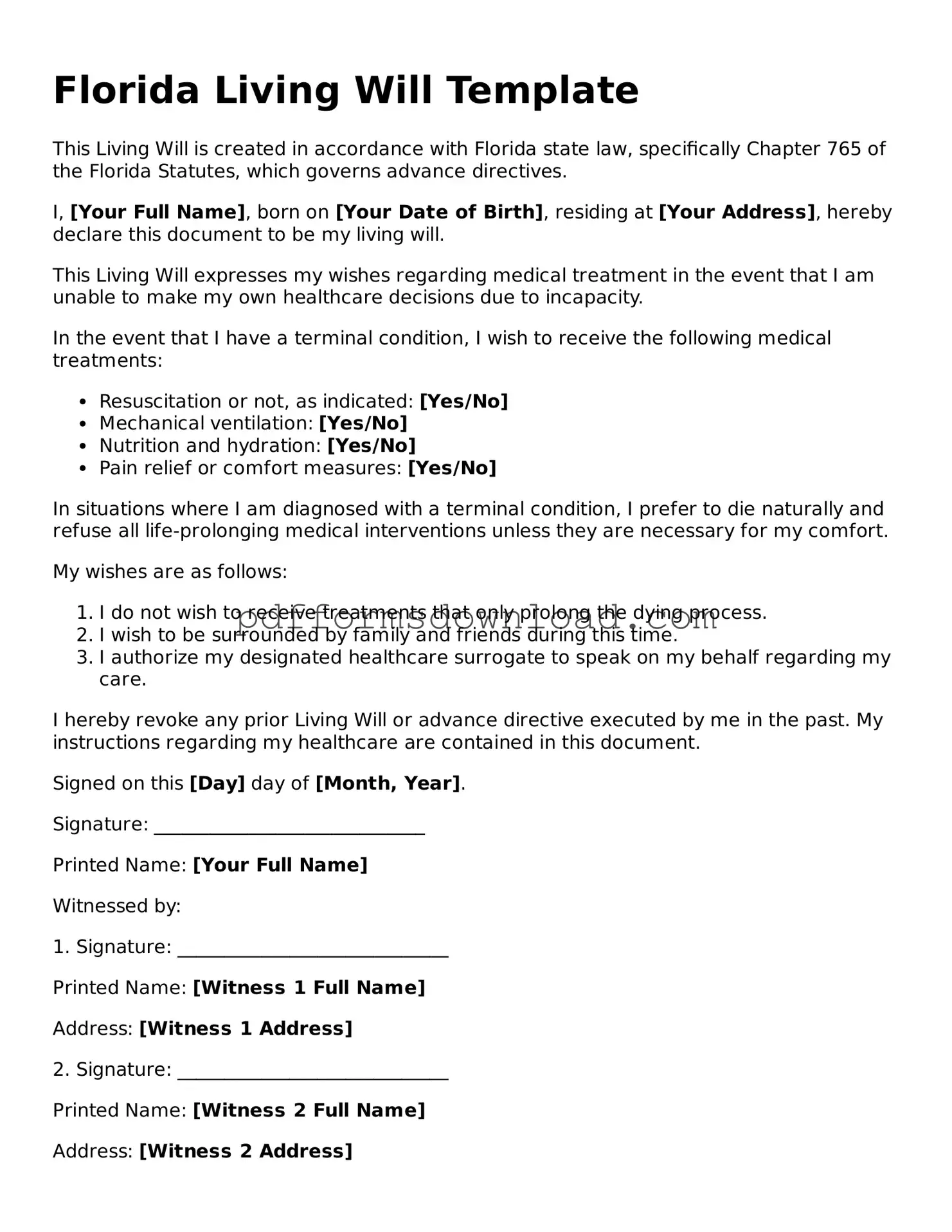What is a Florida Living Will?
A Florida Living Will is a legal document that allows individuals to express their wishes regarding medical treatment in the event they become unable to communicate those wishes themselves. It specifically addresses end-of-life decisions, such as whether to receive life-sustaining treatments or to be kept comfortable through palliative care.
Who should create a Living Will?
Anyone over the age of 18 can create a Living Will in Florida. It is especially important for individuals with serious health conditions, those approaching significant medical procedures, or anyone who wants to ensure their healthcare preferences are known and respected. Having a Living Will can provide peace of mind to both the individual and their loved ones.
How do I create a Florida Living Will?
To create a Living Will in Florida, you must complete a written document that clearly states your wishes regarding medical treatment. This document must be signed in the presence of two witnesses who are not related to you and who will not benefit from your estate. Additionally, it’s advisable to consult with a healthcare professional or an attorney to ensure that your document meets all legal requirements.
Can I change or revoke my Living Will?
Yes, you can change or revoke your Living Will at any time, as long as you are mentally competent. To revoke it, you can either destroy the document or create a new Living Will that explicitly states your intention to revoke the previous one. It is important to inform your healthcare providers and loved ones of any changes to ensure that your current wishes are known.
What happens if I don’t have a Living Will?
If you do not have a Living Will, medical decisions may be made by your family members or legal representatives, which can sometimes lead to disagreements or confusion about your preferences. Without a Living Will, there is a risk that your wishes may not be honored, especially in critical situations. Having this document in place helps to avoid potential conflicts and ensures that your desires are respected.
Is a Living Will the same as a Durable Power of Attorney for Healthcare?
No, a Living Will and a Durable Power of Attorney for Healthcare are different documents. A Living Will outlines your specific medical treatment preferences, while a Durable Power of Attorney for Healthcare designates someone to make healthcare decisions on your behalf if you are unable to do so. Both documents are important and can work together to ensure your healthcare wishes are honored.
Where should I keep my Living Will?
It is important to keep your Living Will in a safe but accessible place. You should provide copies to your healthcare provider, family members, and anyone designated as your healthcare proxy. Additionally, consider keeping a copy in your medical records. This ensures that your wishes are readily available when needed.

